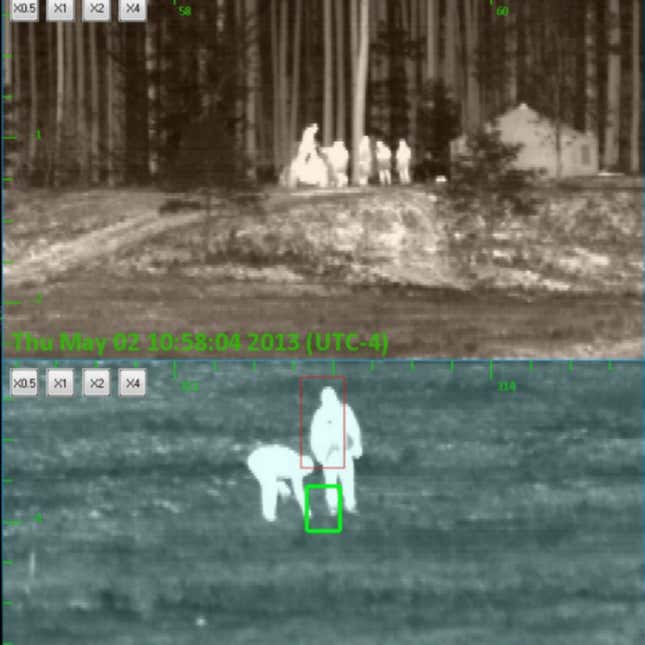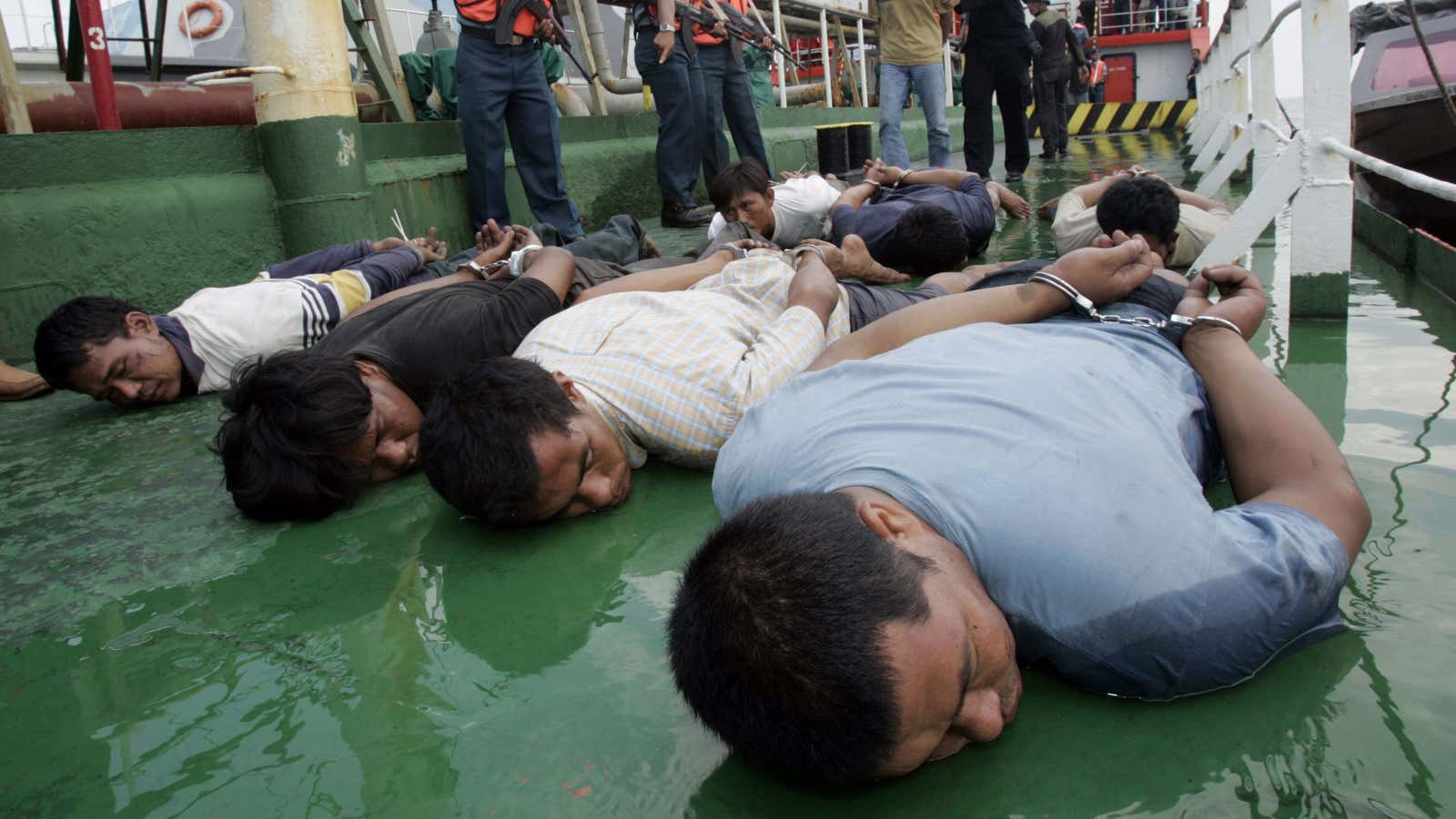There has hardly been a better time to be an oil and gas company, with an abundance of new places to drill. That is, unless terrorists and pirates bother you.
Which has been the opening for numerous new businesses—private security forces, ship-and-kidnap rescue and, on the technology front, companies with souped-up visualization equipment—to cater to the simultaneous boom in oil and in armed attacks on the industry.
France-based HGH Infrared Systems sees a market in this last category. The US Army has been HGH’s biggest client, buying its high-power thermal surveillance system for use in the middle of nowhere (parts of Afghanistan, for example). The system allows its users to see in a 360-degree radius up to five kilometers away even in total darkness, the company says.
But now HGH has a couple of oil-and-gas clients as well. Shell has bought the system for a floating liquefied natural gas (LNG) facility it is building 200 kilometers off the coast of Australia. It will be the largest maritime structure ever built—six times the size of the biggest aircraft carrier. Shell’s new surveillance system—two HGH cameras attached on either side of the LNG platform—includes alarms if anyone unexpected shows up by sea.
France’s Total has also bought the system, intending it for use on a project platform in Yemen, where terrorist attacks have been commonplace. Here is what intruders look like in the system:

Shell and Total are responding to a spate of attacks at sea and on shore. In January, an al Qaeda force attacked a BP-run refinery in Algeria, leaving 38 people dead. An internal BP report (paywall) said the company also faced potential terrorist threats in Iraq, Nigeria, Somalia and Turkey. In addition, pirate attacks are on the rise off the coasts of West Africa and Indonesia, according to the International Maritime Bureau.
HGH’s Briana Shea told Quartz: “Pirates can be a very big deal, especially in parts of the world where many off the offshore rigs are.”
